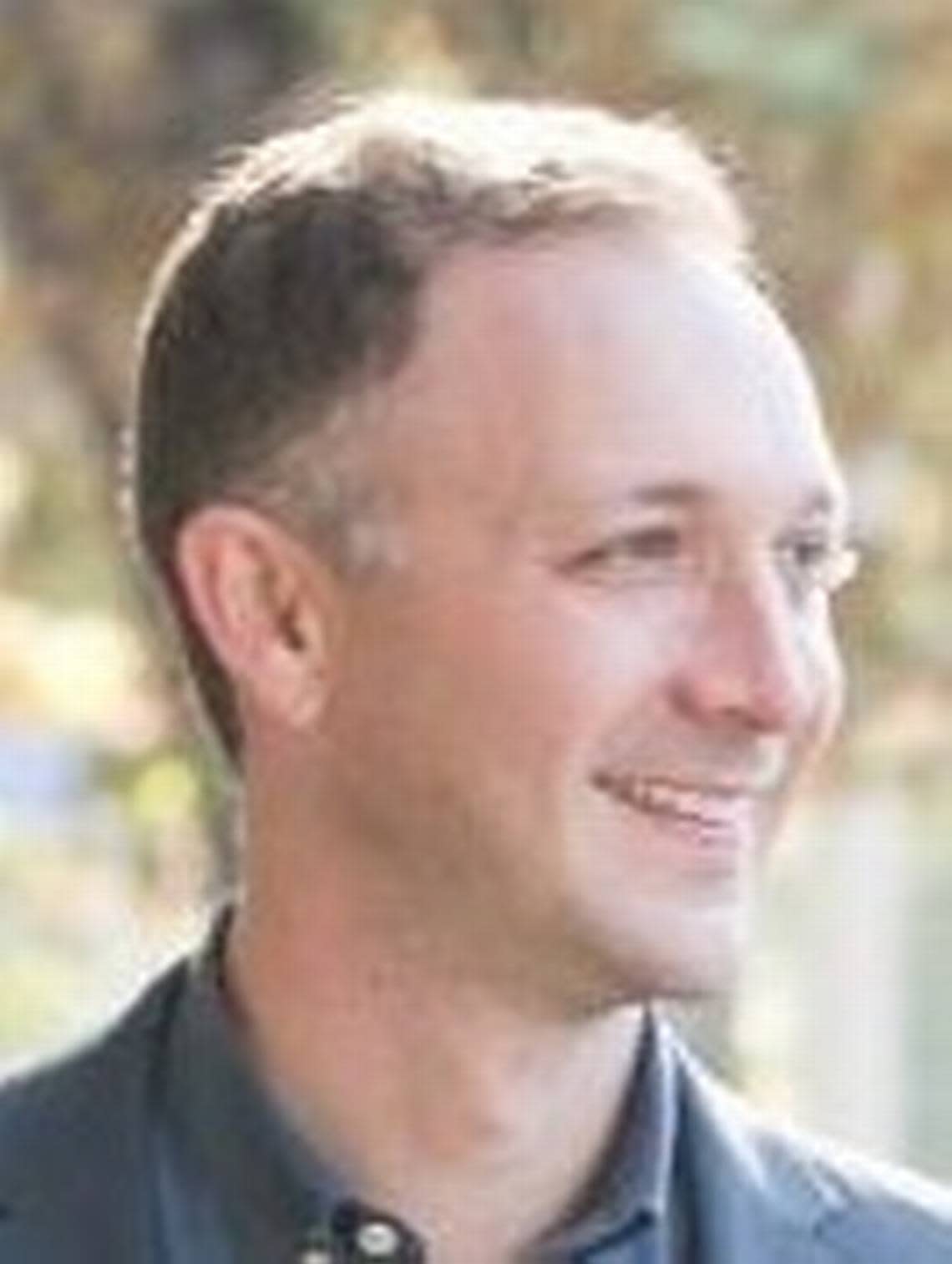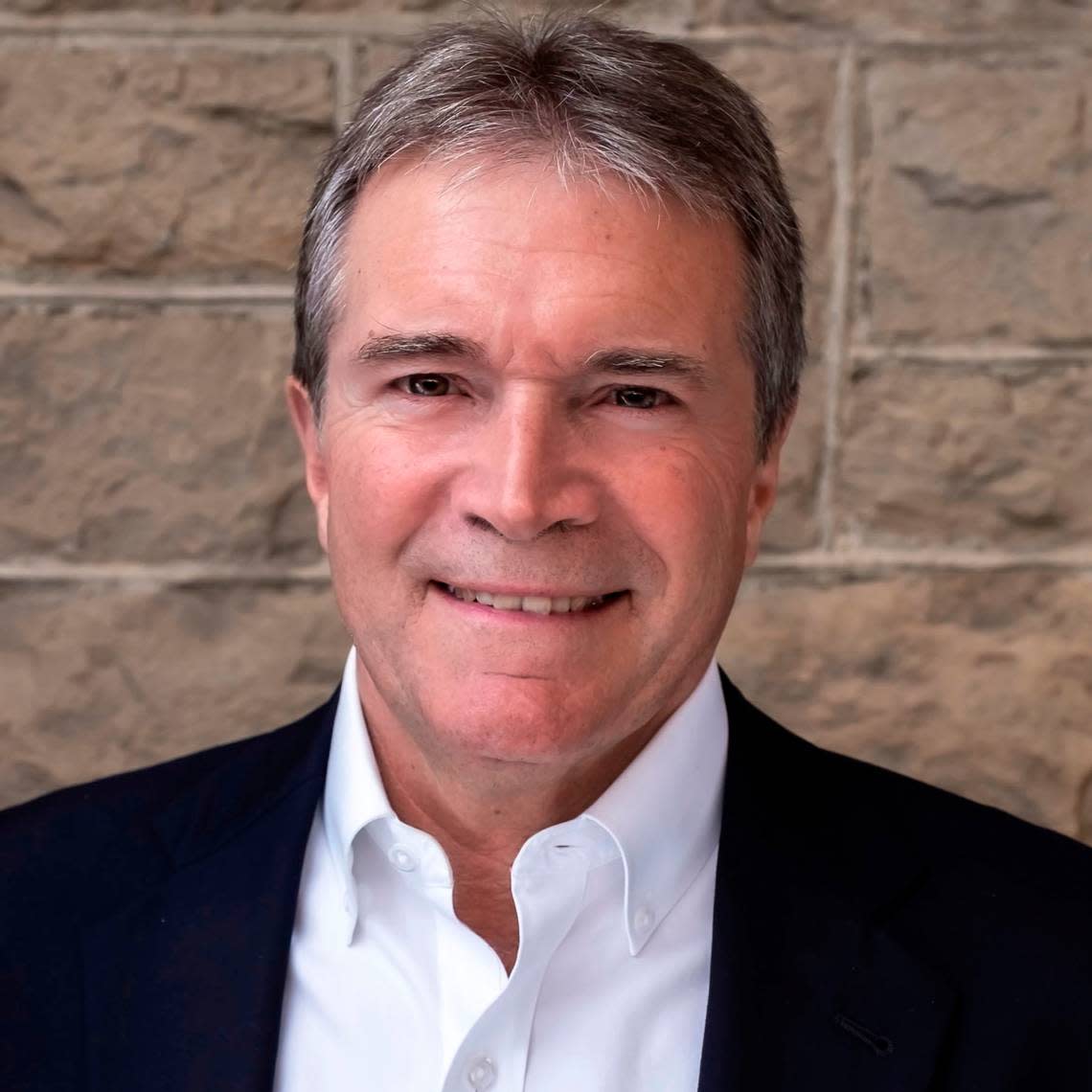Would you support a 1% sales tax for commuter rail, or maybe a jail? See what’s afoot
Some employees at Chobani, the Greek yogurt maker in Twin Falls, must ride their bikes to work on Interstate 84 because there is no inexpensive and reliable public transportation in the city, developer Casey Lynch says.
Lynch, whose Boise firm Roundhouse has developed several downtown-area apartment complexes and plans more, wants to team up with other business leaders to solve problems like that.
He wants to change Idaho’s local-option sales tax law to enable all cities and counties to ask voters to raise their sales taxes to address challenges brought on by growth. The money could build affordable housing, pay for rail transit, build new jails or water treatment plants, or support anything the city may need as it grows.
Idaho already allows small resort cities to do this. State law says resort towns with 10,000 or fewer people can use sales tax revenue for voter-supported purposes. The tax is called local option because voters in each of the resort towns can vote the tax down.
Stanley, the tiny central Idaho town near Redfish Lake and the Sawtooth Mountains, has a local sales tax of 2.5%, according to the city’s website. A person who buys a $20 shirt pays $1.20 in the state’s 6% sales tax and 50¢ for the Stanley tax. That allows Stanley to take advantage of tourists’ spending to meet city needs.
Other cities can’t ask voters for such taxes, despite a push from city leaders in Boise and the Treasure Valley
Lynch plans to recruit fellow developers and business leaders from across the state to pass legislation that allows cities across Idaho to use sales-tax revenue. He says business and community-led efforts on local control have worked in Salt Lake City and Colorado.
Lynch said he has spent the last six months talking to business leaders and community members across the state about their concerns with “the lack of investment in infrastructure around the state of Idaho.” He met with some Boise-area business and civic leaders Tuesday.
“The fundamental issue is that almost all tax taxing authority (lies) with the state of Idaho,” Lynch said by phone. “Local municipalities are hamstrung insofar as that they’re almost exclusively dependent upon property taxes to pay for all local services.”

The need for better physical infrastructure exists across Idaho, Lynch says. He said he has not met a single business leader or community member in his talks who did not think Idaho needed to start investing in local infrastructure.
The exact use of the funds would depend on the city and its voters. For example, Canyon County has needed a new jail for years. But the city of Caldwell may want to use its sales tax dollars to build affordable housing.
Business leaders in Utah banded together nearly 30 years ago to push the Utah Legislature to allow cities and counties to invest sales tax revenue into voter-approved projects. Envision Utah, the organization, said on its website that since its founding, cities and counties have increased public transportation options, reduced water usage and improved air quality.
According to the Utah Tax Commission, the local sales tax in all cities is 1%, and the county sales tax is 0.25%. Each city or county decides on the project to use the sales tax revenue for. Approval of the tax and its purpose goes to the voters. Each city can use its funds for its own projects.
Idaho should want to be like Utah, said Lynch, not like Seattle, Los Angeles and Austin, where he said cities are playing a costly game of catch-up because they grew rapidly without first investing in the cities’ infrastructure needs.
“They waited so long that the cost to retrofit the cities with modern infrastructure is prohibitive,” said Lynch, “to the extent that the cost of building one rail line in Seattle or Portland is equivalent to 25% of the annual budget of the state of Idaho.”
Boiseans have been talking about mass transit for years. A 2016 survey by Boise State University found that by more than 2 to 1, respondents favored building “commuter rail service on an existing rail line to link major residential, entertainment and employment centers throughout the Treasure Valley.”
Lynch also hired a pollster to conduct a poll across the state from residents about their primary concerns facing the state. Second to inflation was growth and its impact on quality of life, Lynch said.
Past efforts to persuade the Legislature to change its mind about local control and local-option sales taxes went nowhere. Lynch said if the ask comes from a group of business and community leaders, rather than government officials, a coalition could convince lawmakers.
He also said that for the first time, cities outside of the Treasure Valley are running into problems with infrastructure, as many cities in Idaho experience grow for the first time. He hopes city leaders from outside the Valley will also push rural legislators to think about a solution to the infrastructure shortfalls.
Clay Carley, a Boise developer, agrees with Lynch.

“This growth is statewide; if we if we don’t invest in that growth we’re going to create the same errors that every city in America has done,” said Carley by phone. “We are at a point where we can change that we can invest in our future, unlike those other communities, because we’re early enough on the curve.”
Lynch hopes business leaders can change hearts and minds in the Statehouse soon. Otherwise, he said, Idaho will find itself in an era when “our grandkids are paying five times the cost to do these things that we should be doing now.”
Are you ticked about the Boise area’s growth? New survey results say you’re not alone
Pay even higher rent, Boise? What government deems ‘affordable’ just got a lot costlier
